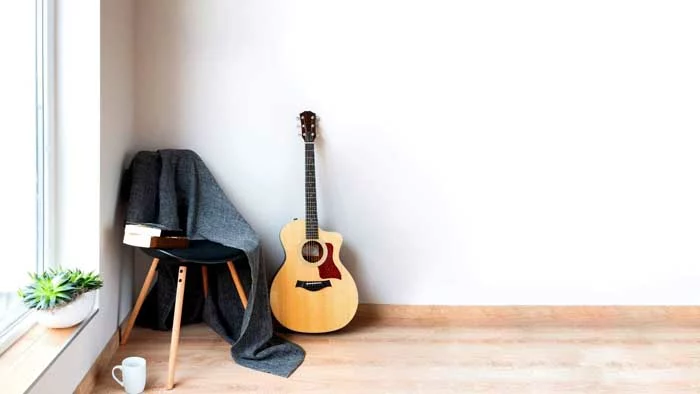How to Store Musical Instruments Safely and Securely in Nashville
October 1, 2024 in Storage Blog

It’s no mystery why Nashville, TN, is known as the “Music City” of America. From the Grand Ole Opry to the Country Music Hall of Fame, music is ingrained in the city’s DNA. If you live or work in Nashville, chances are you play an instrument or two of your own – and you’re likely wondering how to store musical instruments safely.
As a professional or someone who plays for fun, it’s important to take care of your musical instrument. From oiling your guitar’s fingerboard to tuning your piano, the better you maintain your instrument, the longer you’ll be able to play it. If you’re considering how to store musical instruments or setting up a music room storage solution at home, proper maintenance is crucial.
Proper instrument maintenance is even more important if you need to store your instrument for any length of time. Whether you’re preparing for a cross-country move or military deployment, or you’re a student going home for the summer, properly preparing your instrument for storage can make the difference between making sweet music and playing some sour notes. This is especially true for stringed instruments like guitars, which require careful preparation for storage. If you’re looking for guitar storage ideas or want tips on storing a guitar safely, we’ve got you covered.
Even if packing for a move isn’t your forte, your musical instruments should always be properly prepared for storage. Otherwise, you may leave them at risk of serious damage. Discover how to store musical instruments in Nashville at one of our several Nashville storage facilities.
Preparing How to Store Musical Instruments
As convenient as it would be to wipe your instrument down, set it in its case, and call it a day, that’s not realistic (or good for your instruments). From contracting and expanding wood to stretched drum skins, several issues can arise while your instruments are in storage.
The process of storing an instrument differs by type and complexity. General details to consider when storing a musical instrument include:
- How long the instrument will be stored
- The type of storage environment (climate-controlled vs. non-climate controlled)
- The current shape the instrument is in
- The instrument’s age: Is it an antique, or brand-new?
The above factors play an important part in the condition of your instrument post-storage. If you store an older, unclean instrument in a non-climate controlled environment for an extended period of time, you may find yourself in the market for a replacement instrument soon.
Ideas For Guitar Storage and Other String Instruments
When storing a string instrument, your first step is to slightly loosen the strings. If they stay tightened in storage, the tension on the neck could lead to irreparable warping. Additionally, wipe down any excess rosin on the wooden parts of your guitar, violin, or other stringed instruments.
If you’re considering guitar storage ideas or tips for other stringed instruments, invest in a hard, protective case to shield your instrument from dust and preserve its color and finish.Make sure to store your string instrument standing up in its case, rather than on its side or back.
How to Store Your Woodwind Instruments
Breaking down your woodwind instrument is critical to maintaining it while it’s stored. After disassembly, gently clean the parts with a swab to absorb any humidity and prevent moisture from damaging them. You should also secure any individual pieces in a wooden instrument box to stop them from rattling and damaging each other.
Piano Storage
Unlike stringed instruments, pianos are designed to withstand intense pressure and don’t need loosening for storage. Focus on cleaning first. Dust, polish, and wipe down your piano to eliminate any oils or grime that may be lurking on it.
Wrap the pedals and legs with padding to prevent damage, and cover the piano with a tarp to create a barrier against dust. You should only use polish specifically made for pianos and use it sparingly. Excess polish can become a dust magnet.
Steps for Drum and Percussion Storage
Percussion instruments depend heavily on oil to stay in good condition in storage. Whether it’s a full drum kit or a tambourine, your percussion instrument’s metal parts and skins need to be thoroughly cleaned and oiled. Break down your instrument as much as possible to prevent strain on any pieces. You should also lessen the drum skins’ tension to avoid stretching issues.
Preparing Brass Instruments for Storage
Brass instruments, which are mostly made of metal, are particularly susceptible to damage if improperly stored. Clean and polish your brass instrument, and dry it completely to avoid the development of mold or rust. Prevent jammed slides and valves by wiping them down and keeping them sealed in airtight bags.
Discover How to Store Musical Instruments With Convenient Climate-Controlled Nashville Storage
No matter if you’re storing a hand-me-down guitar or your entire band’s full touring gear, your musical instruments need climate control. Without a cool, stable environment, your instruments run the risk of warping, cracking, rusting, and other forms of temperature- and humidity-related damage. In Nashville’s notoriously hot, humid climate, they won’t stand a chance.
When you need to store musical instruments in Nashville, choose one of our convenient storage options. We offer a wide selection of unit sizes that include climate control and other convenient features. In addition, our flexible month-to-month rentals allow you to store for as long—or as short—a term as you need.
Give your musical instruments the care they deserve. Visit your nearest Nashville storage storage facility and find your climate-controlled unit today.
